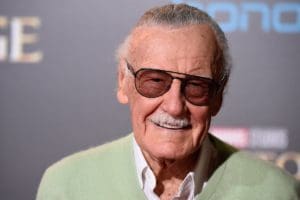 On Monday, November 12, Stan Lee, writer, editor, and publisher of Marvel Comics died. Working closely with Jack Kirby at Marvel, Lee created some of the most iconic superheroes, including Spider-Man, Iron Man, the X-Men, the Hulk, Thor, Daredevil, the Fantastic Four, Black Panther, Ant-Man, and more. Over the course of his career, he would redefine the superhero genre, and have many of his characters go on to grace the silver screen. In many of these films, he even made cameo appearances, and often times these appearances would give a nod to his creation of the character. The comic book world will miss Stan Lee. And now on to this week’s logistics news.
On Monday, November 12, Stan Lee, writer, editor, and publisher of Marvel Comics died. Working closely with Jack Kirby at Marvel, Lee created some of the most iconic superheroes, including Spider-Man, Iron Man, the X-Men, the Hulk, Thor, Daredevil, the Fantastic Four, Black Panther, Ant-Man, and more. Over the course of his career, he would redefine the superhero genre, and have many of his characters go on to grace the silver screen. In many of these films, he even made cameo appearances, and often times these appearances would give a nod to his creation of the character. The comic book world will miss Stan Lee. And now on to this week’s logistics news.
- UPS Freight workers approve new labor contract
- Mondelez pressures palm oil supply chain to go 100% sustainable
- Retail imports slow down from peak but remain strong ahead of tariff increase
- Honda to shift production of SUV to China from US amid trade war
- DB Schenker eyes ‘commercial use’ first with all-electric autonomous truck pilot
- California wildfires endanger supply chain workers, displace businesses
- Liner giants to form new association for digitalization and standardization
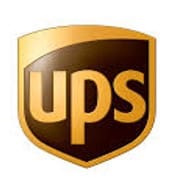 UPS Freight workers voted in favor of approving a new labor contract. The Teamsters contract covers more than 11,500 workers at UPS Freight, which moves bulk shipments on pallets from shippers to stores and other locations. Leading up to the labor union vote, however, UPS Freight was preparing for the worst – the company had stopped picking up shipments from its freight customers to empty its network of freight in case there was a strike. Now that the contract has been ratified, operations will begin again, and UPS Freight will begin accepting new shipments from its customers. It remains to be seen how the temporary stoppage of customer pick-ups will impact the business, as freight customers were forced to make alternate arrangements.
UPS Freight workers voted in favor of approving a new labor contract. The Teamsters contract covers more than 11,500 workers at UPS Freight, which moves bulk shipments on pallets from shippers to stores and other locations. Leading up to the labor union vote, however, UPS Freight was preparing for the worst – the company had stopped picking up shipments from its freight customers to empty its network of freight in case there was a strike. Now that the contract has been ratified, operations will begin again, and UPS Freight will begin accepting new shipments from its customers. It remains to be seen how the temporary stoppage of customer pick-ups will impact the business, as freight customers were forced to make alternate arrangements.
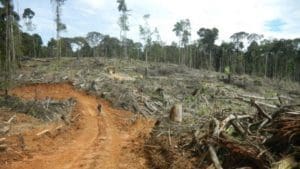 As pressure mounts for more sustainable supply chains, Mondelez is stepping up its efforts. While the company has been outspoken about the problems arising from improper sourcing of palm oil, Mondelez is now calling on its suppliers for 100 percent sustainability and transparency in palm oil sourcing. The company announced in a statement this week that it has challenged its supply chain, as well as the global industry, to be more sustainable and transparent in the production of palm oil. Mondelez is asking companies to commit to palm oil concession mapping, which outlines the places most at risk of deforestation, and to act more quickly to end deforestation. In the meantime, the company has cut ties with 12 palm oil suppliers, claiming they are engaged in deforestation practices.
As pressure mounts for more sustainable supply chains, Mondelez is stepping up its efforts. While the company has been outspoken about the problems arising from improper sourcing of palm oil, Mondelez is now calling on its suppliers for 100 percent sustainability and transparency in palm oil sourcing. The company announced in a statement this week that it has challenged its supply chain, as well as the global industry, to be more sustainable and transparent in the production of palm oil. Mondelez is asking companies to commit to palm oil concession mapping, which outlines the places most at risk of deforestation, and to act more quickly to end deforestation. In the meantime, the company has cut ties with 12 palm oil suppliers, claiming they are engaged in deforestation practices.
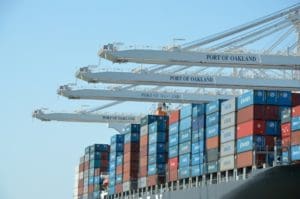 According to the monthly Global Port Tracker report released today by the National Retail Federation (NRF) and Hackett Associates, imports at the nation’s major retail container ports have slowed down from their pre-holiday peak. However, imports remain at a high level as retailers try to bring in as much merchandise before tariffs increase in January. US ports covered by Global Port Tracker handled 1.87 million Twenty-Foot Equivalent Units in September, the latest month for which after-the-fact numbers are available. That was down 1.3 percent from August but up 4.6 percent year-over-year. Imports set a monthly record of 1.9 million TEU in July ahead of 10 percent tariffs on $200 billion in goods from China that took effect in September and are scheduled to rise to 25 percent in January.
According to the monthly Global Port Tracker report released today by the National Retail Federation (NRF) and Hackett Associates, imports at the nation’s major retail container ports have slowed down from their pre-holiday peak. However, imports remain at a high level as retailers try to bring in as much merchandise before tariffs increase in January. US ports covered by Global Port Tracker handled 1.87 million Twenty-Foot Equivalent Units in September, the latest month for which after-the-fact numbers are available. That was down 1.3 percent from August but up 4.6 percent year-over-year. Imports set a monthly record of 1.9 million TEU in July ahead of 10 percent tariffs on $200 billion in goods from China that took effect in September and are scheduled to rise to 25 percent in January.
 Speaking of tariffs, Honda has announced plans to shift production of the Acura RDX to factories in China from their facility in Ohio to avoid the 40 percent Chinese tariff on US auto imports. China already had a relatively high tariff of 25 percent on imported vehicles, but after the trade war escalated, an additional 15 percent was added to US imports. Honda hopes to capture a larger share of the market with lower prices from domestically produced vehicles. By moving production to China, Honda expects to be able to reduce the sticker price by about 20 percent on the RDX. The hope is to increase sales ten-fold for the SUV. While the vehicles will not be subject to the import tariffs, it is possible that additional taxes may be levied on certain components.
Speaking of tariffs, Honda has announced plans to shift production of the Acura RDX to factories in China from their facility in Ohio to avoid the 40 percent Chinese tariff on US auto imports. China already had a relatively high tariff of 25 percent on imported vehicles, but after the trade war escalated, an additional 15 percent was added to US imports. Honda hopes to capture a larger share of the market with lower prices from domestically produced vehicles. By moving production to China, Honda expects to be able to reduce the sticker price by about 20 percent on the RDX. The hope is to increase sales ten-fold for the SUV. While the vehicles will not be subject to the import tariffs, it is possible that additional taxes may be levied on certain components.
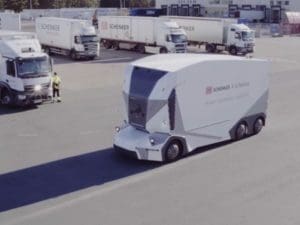 DB Schenker and intelligent movement company, Einride, have “launched the installation for the first commercial use” of an all-electric, autonomous truck, named T-pod. DB Schenker and Einride explained that the T-pod has no driver’s cab but is supervised and can be remotely operated by a human from hundreds of miles away. The idea is to reduce the size of the vehicle while enabling increased loading capacity, and enabling the truck to run solely on batteries. Testing started earlier this week within the company’s warehouse, with plans to test the vehicle on the road later this year. While autonomous vehicles are still likely a way off from becoming a reality on the road, more and more companies are investing in tests. This model’s all-electric capabilities also aim to reduce CO2 emissions.
DB Schenker and intelligent movement company, Einride, have “launched the installation for the first commercial use” of an all-electric, autonomous truck, named T-pod. DB Schenker and Einride explained that the T-pod has no driver’s cab but is supervised and can be remotely operated by a human from hundreds of miles away. The idea is to reduce the size of the vehicle while enabling increased loading capacity, and enabling the truck to run solely on batteries. Testing started earlier this week within the company’s warehouse, with plans to test the vehicle on the road later this year. While autonomous vehicles are still likely a way off from becoming a reality on the road, more and more companies are investing in tests. This model’s all-electric capabilities also aim to reduce CO2 emissions.
The California wildfires are endangering supply chain workers while displacing businesses and disrupting the global supply chain. The largest of the three burning fires is the Camp Fire which is covering more than 100,00 acres in Northern California. This area is home to many large warehouses which support e-commerce fulfillment. The warehouses are currently not operational and are at risk. The two fires burning in Southern California have closed the Pacific Coast Highway, which has had a serious impact on the transportation of goods from the southern part of the state northward. On top of this, the smoke from the fires is spreading throughout the country, and some warehouses in the state have had to close due to the potential health impact on its workers.
And finally, the world’s five major ocean lines have joined forces to create common information technology standards which will be openly available and free of charge for all stakeholders of the container shipping segment. AP Moller-Maersk, CMA CGM, Ocean Network Express (ONE), Hapag-Lloyd and MSC announced a joint initiative to pave the way for digitalization, standardization and interoperability in the container shipping industry. According to Adam Banks, chief technology & information officer at AP Moller-Maersk, “a joint set of technical standards will ensure interoperability and enable all parties to concentrate on value adding differentiation as we move the container shipping industry towards further digitalization. Ultimately this will benefit all parties in our customers’ supply chains.”
That’s all for this week. Enjoy the weekend and the song of the week, Spiderman by the Ramone’s.


















Leave a Reply